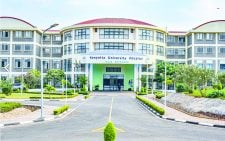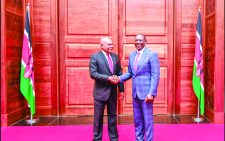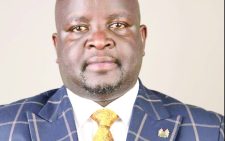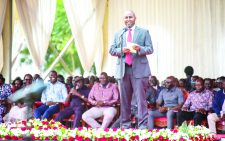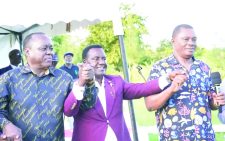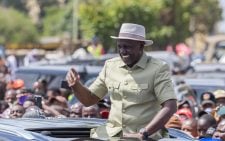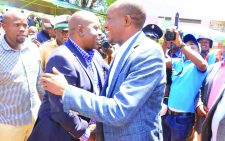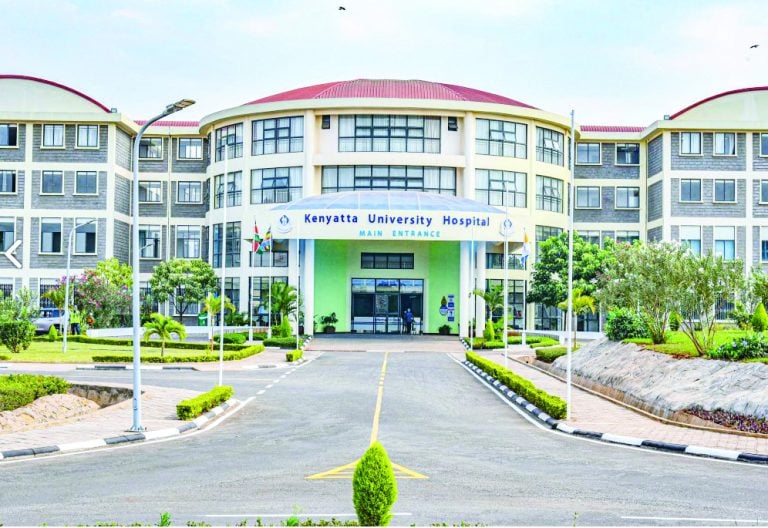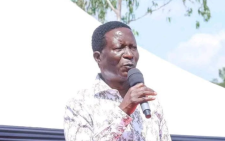How big political parties will share Sh1.4b windfall
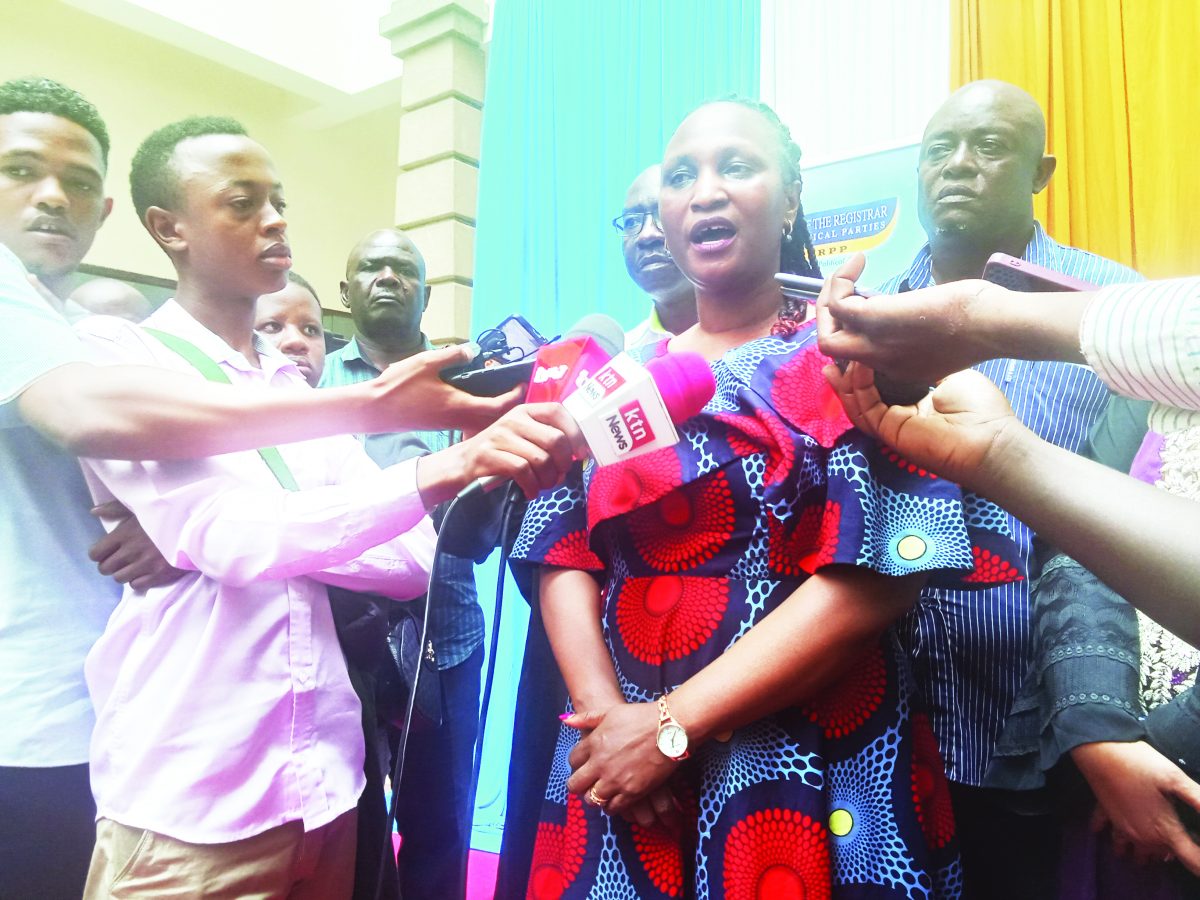
At least 48 political parties will receive a total of Sh1.482 billion from the Political Parties Fund.
President William Ruto’s United Democratic Alliance (UDA) Party will get the lion’s share at Sh576.8 million followed by Raila Odinga’s Orange Party with Sh308.15 million, Jubilee (Sh135.1 million), Wiper (Sh72.18 million) and Democratic Action Party of Kenya (DAP-K) with Sh31.63 million, rounding out the top five recipients.
Nderitu, in a gazette notice, noted that the funds will be disbursed on a quarterly basis upon receipt from the National Treasury.
“In exercise of powers conferred by sections 23,25 and 34 of the Political Parties Act 2011 and regulation 6(c) of the Political Parties (Funding) Regulations 2019, the Registrar of Political Parties gives notice that the following 48 political parties are eligible to receive funds from the Political Parties Fund (PPF) during the Financial Year 2023/24,” the notice.
Prime Cabinet Secretary Musalia Mudavadi’s Amani National congress (ANC) will receive Sh26.6 million, United Democratic Movement (UDM, Sh26.8) Forum for Restoration of Democracy -Kenya (Sh25.8) and Kanu (Sh24.8).
Maendeleo Chap Chap of Foreign Affairs Cabinet Secretary will get Sh12.66 million while Senate Speaker Amason Kingi’s Pamoja African Alliance will get Sh11.5 million, Kenya Union Party (Sh9.5), Tujibebe Wakenya Party of former Kiambu Governor William Kabogo (Sh7.6), Service associated (TSP) of former Laikipia East MP Mwangi Kiunjuri (Sh 10.5).
According to National Assembly Speaker Moses Wetangula, UDA has 145 MPs, ODM 86, Jubilee (28) and Wiper (26), UDM (eight), ANC (eight), Ford-Kenya (six), Kanu (six), DAP-Kenya (five), PAA (three), Kenya Union Party (three), UPIA (two), Maendeleo Chap Chap (two) and The Service Party (two).
Allocations come just after National Treasury announced plans to amend the law to change current funding model.
According to the Political Parties Act, 0.3 per cent of all party generated revenues should be given to political parties. However, Treasury Cabinet Secretary Njuguna Ndung’u told MPs that the current arrangement is unsustainable.
He said Treasury’s allocation to the fund this year stood at Sh1.475 billion, against the legal share of Sh7 billion, which is 0.3 per cent of the National government’s revenue.
“In this regard we may consider proposing amendments to the Act to ensure a sustainable funding model to political parties,” the CS said.
Funding model
While responding to a question from Mathare MP Anthony Oluoch, Njuguna said complying with the 0.3 per cent requirement will hurt critical functions of the two levels of government.
He said Treasury owed Sh30 billion to parties, which has accrued since the 2016/17 Financial Year, when the debt stood at Sh3.5 billion.
Njuguna said while considering the allocation to the political parties fund, the National Treasury is always guided by the sharable revenue to county governments, provision of mandatory constitutional requirements such as health services, education, provision for security, safeguarding of national interests, provision for equalisation fund and other priorities available.
Since enactment of the Political Parties Act 2011, the government has never complied with the 0.3 per cent.
Meanwhile, Office of Registrar of Political Parties (ORPP) has slammed political parties for allegedly overlooking the inclusion of special interest groups at the Coast during the 2022 General Election.
Speaking in Mombasa at the weekend, Nderitu was concerned by “discouraging figures” drawn from last year’s General Election, where she said available records paint a clear picture that political parties could be muffling the participation of PWDS, youth and women in politics.
“In Mombasa alone, out of 497 candidates, there were 409 male, while women were just 87. There were only five persons with disabilities and those below the age of 35 were 92 and candidates above 35 were 403… These figures are a clear indication that there are people who have been suffocated,” the Registrar said in Mombasa.
With the above data partly representing the Coast region, Nderitu called for political education to enlighten Kenyans about the country’s political situation with the view of bringing to an end the political marginalisation against special interest groups.
“We cannot continue being in a situation whereby parties are populated with members but when it comes for elective politics, it’s only a handful, women, PWDs and youth. We must recognise the importance of inclusion of special interest groups in the democratic space,” she said.
She was speaking during the launch of the new Mombasa Office of the ORPP after relocating to the Jubilee Arcade, Moi Avenue with the view of improving accessibility to PWDS.
